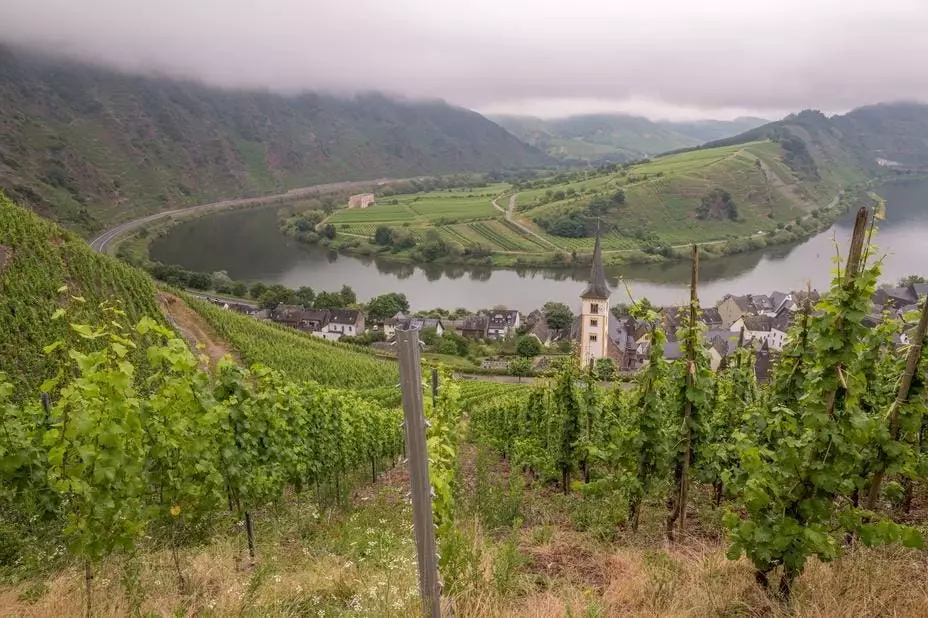Standing on the steep slopes of the Thörnicher Ritcher Vineyard in the Mosel region, one can’t help but wonder why anyone would choose to plant vineyards in such challenging terrain. However, this unique landscape plays a crucial role in producing some of the world’s finest Rieslings. With a cool microclimate, grey slate soils, and a deep tradition of small growers, the Mosel offers an ideal environment for growing Riesling grapes with high acidity and tension.
While the Mosel region has a long history of winemaking, the Riesling produced today is different from that of the past. Initially recognized for its sweetness in the 17th century, Riesling has evolved to showcase a remarkable balance of natural sugars and acidity. The ability of German Riesling to accumulate high levels of sugars while maintaining acidity sets it apart from other grape varieties. This unique characteristic has led to a resurgence in the appreciation of German Riesling, particularly in its dry wine expressions.
In recent years, Mosel winemakers have been embracing traditional farming and winemaking methods passed down through generations. By focusing on balance in the vineyard and the glass, producers like Weingut Carl Loewen and Weingut Wwe. Dr. H. Thanisch Erben Thanisch are creating wines that reflect the terroir of the region. The next generation of Mosel winemakers is collaborating to adapt to changing trends while preserving the heritage of their predecessors.
Choosing a high-quality Mosel Riesling at the desired sweetness level can be a challenge for both wine professionals and enthusiasts. However, wine education can be an enjoyable and rewarding experience. From color-coded bottle capsules to international sweetness scales, wineries like Weingut Markus Molitor and Weingut Schloss Lieser offer various methods to help consumers make informed choices. While German wine quality indicators may seem daunting at first, engaging with knowledgeable wine professionals can enhance the tasting experience.
With iconic vineyards like Berncasteler Doctor and passionate winemakers dedicated to sustainable practices, the Mosel region continues to reinvent itself. Families with multi-generational winemaking traditions, such as Weingut Wwe. Dr. H. Thanisch Erben Thanisch, and innovative producers like Clemens Busch are contributing to the global recognition of Mosel Riesling. As the region adapts to modern trends while honoring its heritage, Mosel Riesling remains a versatile and vibrant wine offering infinite possibilities for exploration.
The Mosel region of Germany stands out as a premier destination for Riesling enthusiasts seeking exceptional wines with a sense of place. From its challenging terroir to its rich winemaking history, the Mosel embodies the magic of German Riesling. As the world begins to rediscover the beauty and complexity of Mosel Riesling, it’s clear that these wines deserve far greater recognition and appreciation.

